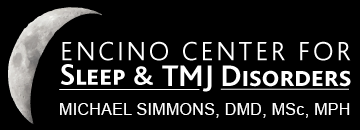5 Shocking Things that Happen When Your Brain is Deprived of Oxygen
When you think about holding your breath underwater for long periods of time, just the thought can feel suffocating. It’s likely you’ve experienced a breathless moment that’s left a jarring memory, similar to touching your hand to a hot stove or oven. You learn your lesson and try to avoid the harmful stimulus.
Your brain needs oxygen to fuel the cells that are vital in carrying out various functions within your body. When you experience moments of apnea — cessation of air — your mind will undergo stages of increasing intensity with passing time. These stages include:
- 60 seconds – Damage has not yet occurred, however, repeated periods of oxygen deprivation, like that found in sleep apnea, can have lasting effects
- 3 minutes – Neurons are further destroyed and irreparable damage is likely
- <5 minutes – Brain cells begin dying
- 5 minutes – Death is around the corner
- 10 minutes – If the brain is alive it will be in a state of coma and irreversible damage is almost unavoidable
Every Second Counts
Similar to experiencing irreversible damage for minutes without air, just seconds of repeated periods of oxygen loss are associated with long-term health consequences. Sleep apnea is a disorder that’s characterized by repeated pauses in breathing throughout the course of sleep.
When this happens, your body will wake you up just enough to get the air it needs. This can leave you feeling exhausted and longing for your bed throughout the day.
Even though the disorder is largely undiagnosed, it comes with a slew of symptoms and complications if left untreated. Sleep apnea is linked to symptoms such as fatigue, moodiness, difficulty concentrating, snoring, and gasping for air during sleep. Some of these symptoms can also lead to relationship issues.
If left untreated, sleep apnea can have serious complications such as:
- Heart disease
- Stroke
- High blood pressure
- Diabetes
- Depression
- Worsening of ADHD
- Headaches
Contact Us For Your Sleep Apnea Needs
There are several ways to treat sleep apnea and we’ll find the one that’s right for you. Give us a call at (818) 300-0070 and let us help you on your road to a healthy night’s rest.
Dr. Simmons is an American Dental Association recognized specialist in orofacial pain and has his masters degree in sleep medicine from a leading international medical school sleep medicine program. Dr. Simmons is also double-board credentialed in both orofacial pain and dental sleep medicine by the two leading internationally recognized credentialing organizations.

